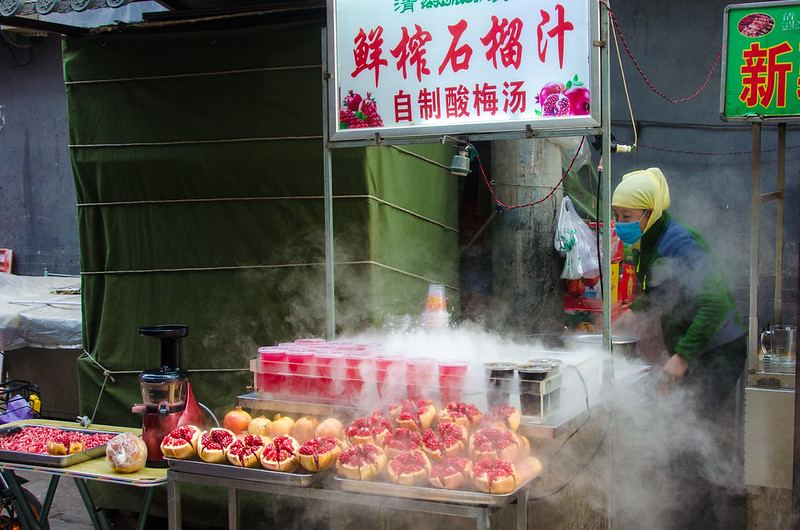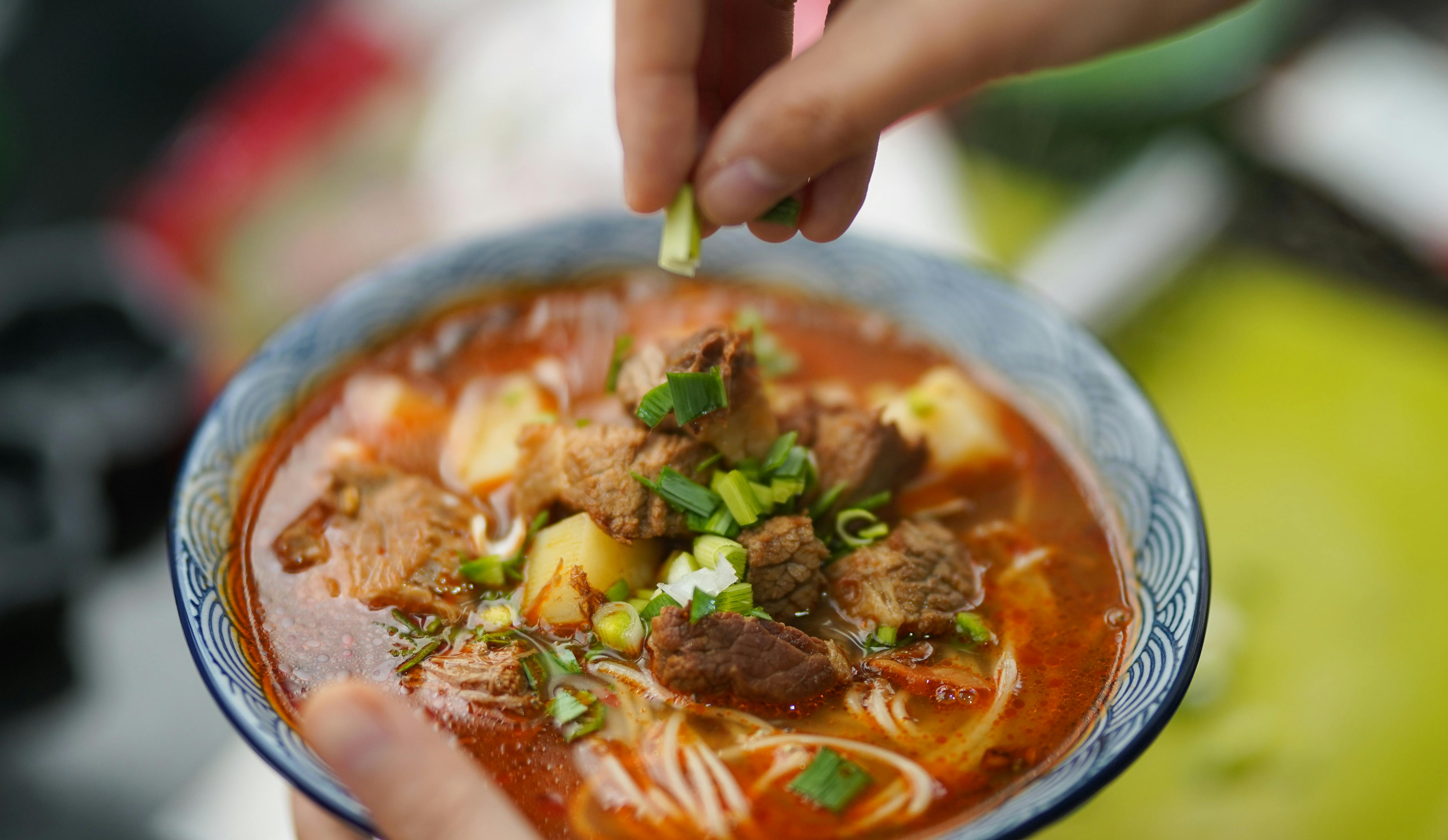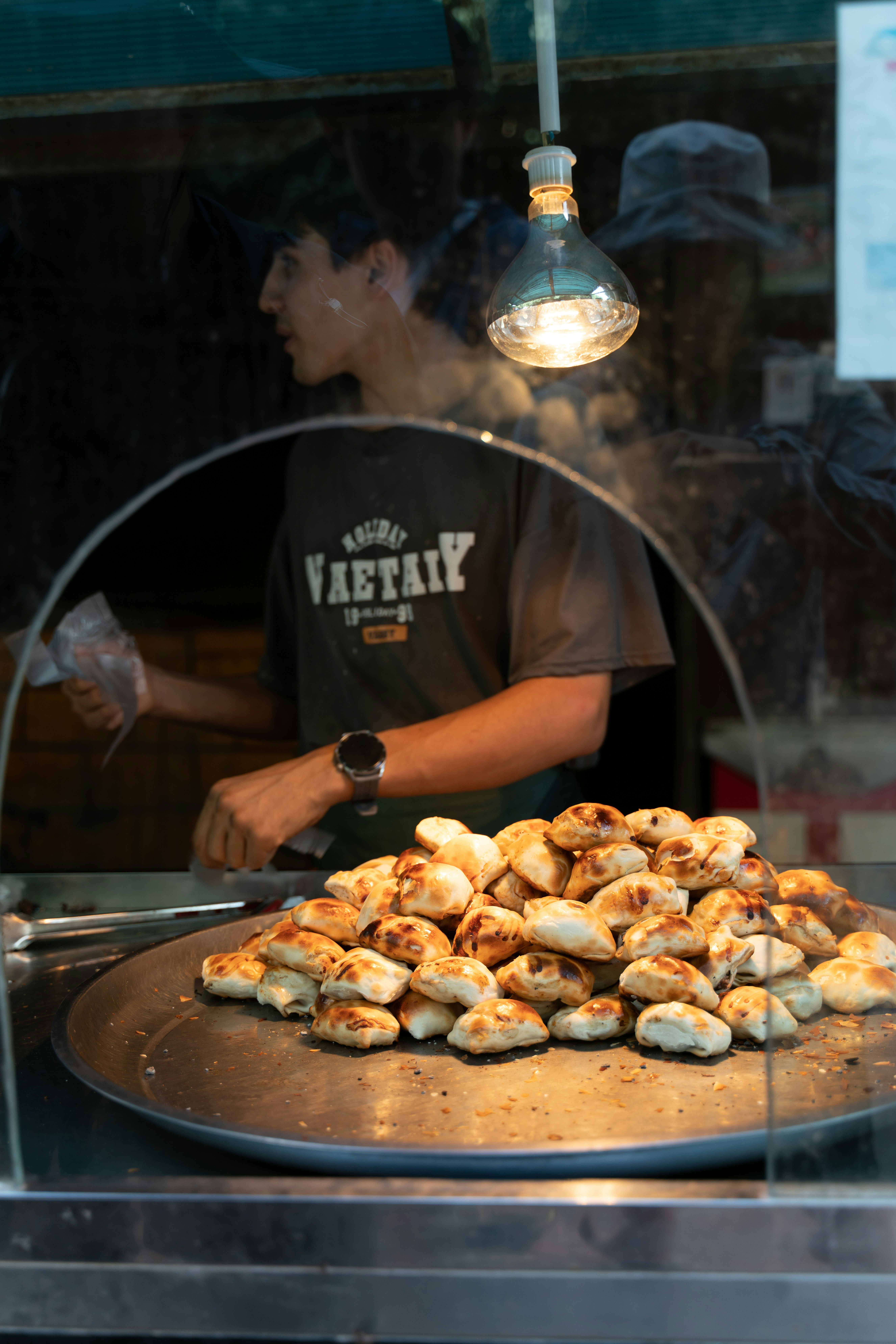Halal Food Itinerary in China
Rich tapestry of Muslim Chinese cuisine from Beijing to Xinjiang.
A Halal Feast Across China: Exploring Muslim Culinary Traditions
An extraordinary journey through China’s diverse landscape of Muslim cuisine. From the hearty lamb dishes of Xi’an to the delicate dim sum of Guangzhou, and the unique flavors of Xinjiang, this trip will take you on a gastronomic adventure that showcases the rich heritage of Chinese Islamic food culture.
The Rich History of Muslim Cuisine in China
Islam arrived in China over 1,400 years ago via the Silk Road, bringing with it a unique culinary tradition. Today, Chinese Muslim cuisine, particularly that of the Hui and Uyghur ethnic groups, is an integral part of China’s food landscape. It combines traditional Chinese cooking techniques with halal ingredients, creating a distinctive and delicious fusion.
💡 Halal Trivia: The Chinese term for halal is “清真” (qingzhen), which literally means “pure and true.”
Your Halal Food Itinerary
1. Beijing : Imperial City, Muslim Quarter Delights
Begin your journey in Beijing, where ancient history meets a thriving Muslim community.
Must-Try Dishes:
- Beef or Mutton Hot Pot: A communal dish perfect for cold Beijing nights
- Xianbing (馅饼): Savory stuffed flatbreads
- Lamb Skewers (羊肉串): Spiced and grilled to perfection
Where to Eat:
- Dongxing Shun Beef Restaurant: Famous for its halal beef dishes
- Baihe Vegetarian Restaurant: Offers halal-friendly vegetarian options
- Hongbinlou Restaurant: Known for its Beijing-style Muslim cuisine
Where to Stay:
Explore hotels near Niujie Mosque with:
💡 Cultural Tip: Visit the historic Niujie Mosque, the oldest and largest mosque in Beijing, built in 996 AD.
2. Xi’an : Heart of Hui Muslim Culture
Next, head to Xi’an, a city with over 1,300 years of Islamic history and a vibrant Muslim Quarter.
Must-Try Dishes:
- Roujiamo (肉夹馍): Braised meat stuffed into a crispy, flatbread-like bun
- Yangrou Paomo (羊肉跑馍): Lamb soup served with crumbled flatbread
- Liangpi (凉皮): Cold noodle dish made from wheat or rice flour, served with a tangy and spicy sauce
Where to Eat:
- Lao Sun Jia: Famous for its yangrou paomo
- Jiasan Guantang Baozi: Known for its soup dumplings
- Huimin Jie Food Court: For a variety of street food options
Where to Stay:
Explore hotels near Xi’an Muslim Quarter with:

3. Lanzhou : Noodle Paradise
Lanzhou, capital of Gansu Province, is famous for its hand-pulled noodles and strong Muslim influence.
Must-Try Dishes:
Lanzhou Beef Noodles (兰州牛肉面): The city’s signature dish

The famous Lanzhou Beef Noodles. Hui-style Niangao (年糕): Sweet rice cakes
Shoupa Meat (手扒肉): Hand-grabbed mutton
Where to Eat:
- Mazilu Beef Noodles: A local favorite for authentic Lanzhou beef noodles
- Dongfang Jiaozi King: Known for its variety of halal dumplings
- Zhengning Road Night Market: For a range of halal street food options
Where to Stay:
Explore hotels in Lanzhou with:
💡 Noodle Tip: Watch the skilled noodle makers at work - they can make noodles of different thicknesses just by varying the number of pulls!
4. Yinchuan: Ningxia’s Halal Haven
Yinchuan, capital of the Ningxia Hui Autonomous Region, offers a unique blend of halal cuisine.
Must-Try Dishes:
- Yangrou Paomo (羊肉跑馍): Mutton soup with flour balls
- Youxiang (油香): Deep-fried twisted dough
Where to Eat:
- Hui Yan Lou Restaurant: Known for its traditional Hui cuisine
- De Yue Lou Restaurant: Offers traditional lamb hotpot
- Tan Yang Shuo Restaurant: Famous for its lamb dishes
Where to Stay:
Explore hotels in Yinchuan near Nanguan-Mosque with:
5. Ürümqi, Xinjiang: Uyghur Culinary Paradise
Next, venture to Ürümqi, the capital of Xinjiang Uyghur Autonomous Region, where you’ll experience the unique flavors of Uyghur cuisine.
Must-Try Dishes:
Polo (抓饭): Uyghur-style pilaf with mutton and carrots
Laghman (拉面): Hand-pulled noodles with meat and vegetables
Samsa (烤包子): Baked pastries filled with minced meat and onions

Xinjiang Style Samsa. Kebabs (烤肉): Especially lamb skewers spiced with cumin and chili
Where to Eat:
- Xiao Ga Zi Restaurant: Known for its authentic Uyghur dishes and live music
- Zui Mei Xinjiang Restaurant: Popular for its polo and kebabs
- Grand Bazaar Food Court: For a variety of Xinjiang street food
Where to Stay:
Explore hotels in Ürümqi near International Grand Bazaar with:
💡 Cultural Tip: Try Uyghur milk tea, a unique blend of black tea with milk, salt, and sometimes butter.
6. Finish your halal journey in Guangzhou, where Cantonese cuisine meets Muslim traditions.
Must-Try Dishes:
- Halal Dim Sum (清真点心): Unique halal versions of classic dim sum dishes
- Silky Chicken Soup: Soup made using black-boned silky chicken
- Beef Chow Fun (干炒牛河): Wide rice noodles stir-fried with beef
Where to Eat:
- Qinghai Restaurant: Known for its Xinjiang style food
- HUI MIN FAN DIAN: Halal dim sum
- Armada Restaurant: Offers a mix of Chinese and Middle Eastern halal cuisine
Where to Stay:
Explore hotels in Guangzhou near Huaisheng Mosque with:
Halal Food Trip Survival Guide
- Look for Certifications: Seek out restaurants with official halal certifications.
- Learn Key Phrases: “Qingzhen” (清真) means halal in Chinese.
- Be Adventurous: Each region offers unique halal dishes - don’t be afraid to try new things!
- Respect Local Customs: Some restaurants may have prayer rooms or close during prayer times.
- Plan Ahead: Research halal options in advance, especially in smaller cities.
📝 Final Tips for Halal Food Adventurers
- Visa Requirements: Check the latest visa policies. As of 2025, there’s a 30-day visa-free policy for certain nationalities.
- Prayer Times: Many major cities have apps or websites listing local prayer times and mosque locations.
- Dietary Preferences: Communicate any specific dietary needs clearly - not all halal restaurants are fully aware of varying Muslim dietary practices.
- Cultural Sensitivity: While China is generally welcoming to Muslims, it’s wise to be respectful and low-key about religious practices in public.
- Regional Variations: Be aware that halal food varies greatly across China. Xinjiang cuisine, for example, is distinctly different from Cantonese halal food.